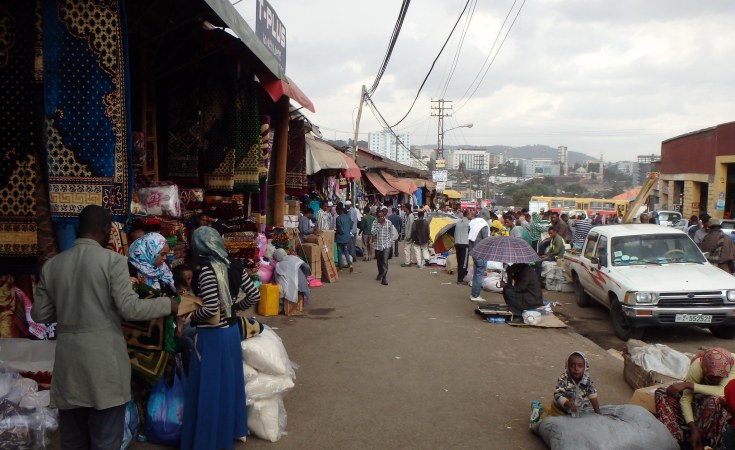Addis Abeba — It's now been a week since Ethiopia liberalized its forex market. Shortly after the news broke, policymakers faced two major tests. The first challenge was the timing of the policy implementation. The concern at the time was that the National Bank might delay the policy implementation, which could cause panic in the parallel market and drive the rates even higher.
However, Mr. Mamo Mihret went by the book and announced the policy early Monday morning, before the market opened. I must admit, many (including me) had doubts about his suitability for the role, mainly because he isn't a trained macroeconomist. But he has proven many wrong multiple times and deserves recognition for efforts to modernize Ethiopia's monetary policy.
The second challenge was the anticipated price rise across the economy and the government's response. Last Sunday, I predicted that prices would increase (as anyone could foresee) and that the government would respond with punitive measures. The prices did rise.
On Wednesday, the Prime Minister appeared on public television, threatening retail traders and importers with punitive actions. By Thursday, Addis Ababa city administration employees were shutting down shops, aiming to curb price hikes. The logic seems to be that shutting down some shops will discipline other traders, preventing them from charging prices higher than when the exchange rate was 1 USD = 125 birr.
Retail traders might agree that, at this rate, it's still feasible not to raise prices. The issue is the uncertainty about where the rate will stabilize. In countries with credible policymakers, signals in official statements can stabilize the market.
In Ethiopia, however, maybe for political reasons, market agents don't find policymakers' signals and statements credible. Building trust and credibility among market participants requires consistent policy implementation, which takes time. This might be why Mr. Amelga tried to use his popularity to calm the market. But he isn't a policymaker. So, for now, everyone is closely watching the official rate's approach to 125 birr. If the rate stabilizes around 125 or below for a sufficient period, product markets might normalize at pre-depreciation prices, and life could continue as usual. But if it exceeds 125 and climbs into the 130s or higher, panic and price increases will persist.
Given this uncertainty, managing the convergence of the official market to the parallel market is critical. Most liberalization policies, including forex, fail due to mistakes made during the adjustment period. This is why the government must manage this period carefully. Current punitive measures are counterproductive. In this uncertain environment, even if traders offer to sell products at lower prices, the government shouldn't accept it. If the market rate exceeds 125, producers won't be able to fully replenish their inventory, reducing their supply capacity and causing actual inflation due to shortages, not hoarding.
So, What should the government do?
A practical approach would be to identify major importers of essential products, who can move the market and compel them to sign short-term renewable agreements to maintain pre-depreciation prices or slow the price increases. This deal should include an exchange rate guarantee of 125 birr from the government for the importers for a given period of time. In return, in addition to selling these products at the pre-depreciation rate, importers should agree to maintain the same amount of nominal profits. To build confidence among other supply chain participants, importers should agree to distribute their goods on credit or similar terms to retailers at the agreed prices, ensuring sufficient inventory.
Instead of shutting down shops, enforcement agencies should conduct random, unannounced audits to ensure compliance. This approach could reduce the intensity of panic that transmits from the exchange rate market to the product market. The objective of this approach is to slow the magnitude of the price rise until the true value of Birr is known.
For this purpose, the government can divert part of the 90 billion birr that it planned to use for subsidy purposes. At the end of the day the fund is aimed to be used to compensate vulnerable consumers for the impending inflation. Intervening at the upstream of the supply chain is less costly and can have a better reach to the wider consumer base than a direct subsidy, which targets a small segment of the society. AS
Abraham Abebe Asfaw (PhD) is an economist at Amazon Inc. He can be reached at abrishaerc@gmail.com


